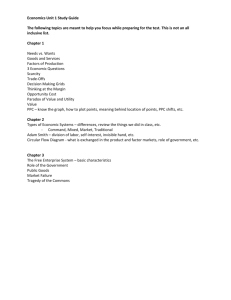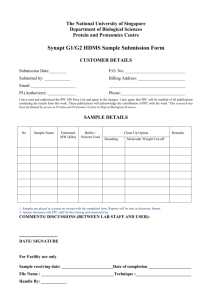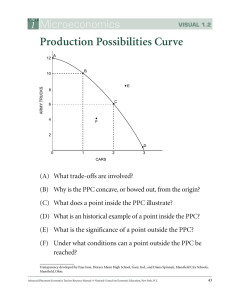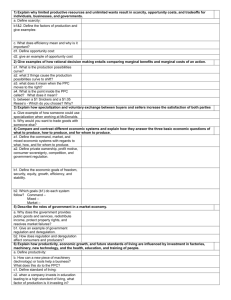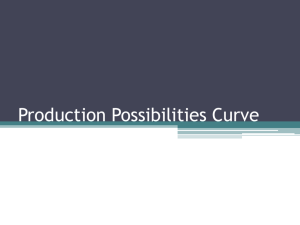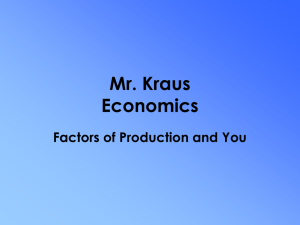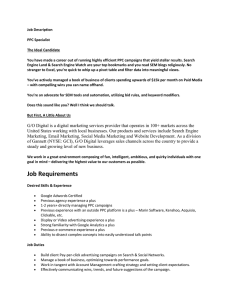ECON 201: Microeconomics ... Study Guide Fundamentals of Economics
advertisement
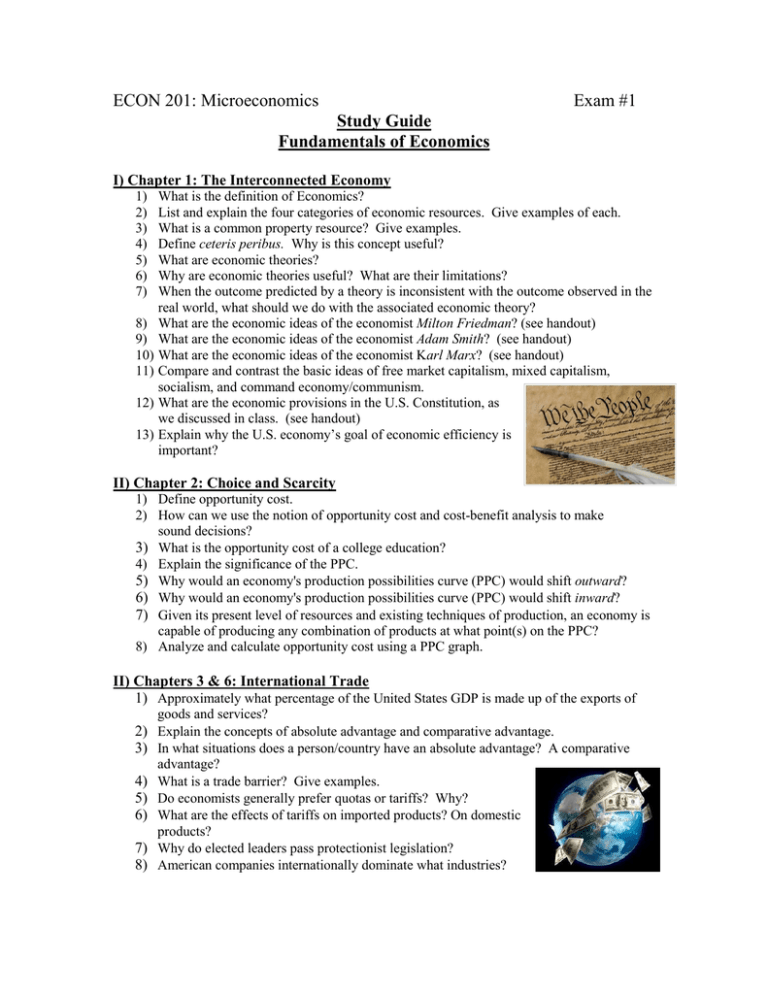
ECON 201: Microeconomics Exam #1 Study Guide Fundamentals of Economics I) Chapter 1: The Interconnected Economy 1) 2) 3) 4) 5) 6) 7) What is the definition of Economics? List and explain the four categories of economic resources. Give examples of each. What is a common property resource? Give examples. Define ceteris peribus. Why is this concept useful? What are economic theories? Why are economic theories useful? What are their limitations? When the outcome predicted by a theory is inconsistent with the outcome observed in the real world, what should we do with the associated economic theory? 8) What are the economic ideas of the economist Milton Friedman? (see handout) 9) What are the economic ideas of the economist Adam Smith? (see handout) 10) What are the economic ideas of the economist Karl Marx? (see handout) 11) Compare and contrast the basic ideas of free market capitalism, mixed capitalism, socialism, and command economy/communism. 12) What are the economic provisions in the U.S. Constitution, as we discussed in class. (see handout) 13) Explain why the U.S. economy’s goal of economic efficiency is important? II) Chapter 2: Choice and Scarcity 1) Define opportunity cost. 2) How can we use the notion of opportunity cost and cost-benefit analysis to make sound decisions? 3) What is the opportunity cost of a college education? 4) Explain the significance of the PPC. 5) Why would an economy's production possibilities curve (PPC) would shift outward? 6) Why would an economy's production possibilities curve (PPC) would shift inward? 7) Given its present level of resources and existing techniques of production, an economy is capable of producing any combination of products at what point(s) on the PPC? 8) Analyze and calculate opportunity cost using a PPC graph. II) Chapters 3 & 6: International Trade 1) Approximately what percentage of the United States GDP is made up of the exports of goods and services? 2) Explain the concepts of absolute advantage and comparative advantage. 3) In what situations does a person/country have an absolute advantage? A comparative advantage? 4) What is a trade barrier? Give examples. 5) Do economists generally prefer quotas or tariffs? Why? 6) What are the effects of tariffs on imported products? On domestic products? 7) Why do elected leaders pass protectionist legislation? 8) American companies internationally dominate what industries?
